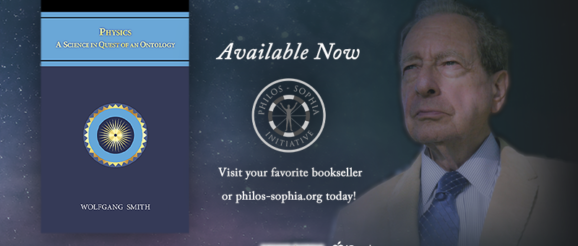‘Physics: A Science in Quest of an Ontology’ Turns Our Understanding of Reality on It’s Head – Innovation & Tech Today

Philosophy is viewed by many as the precursor to modern science. Science is, after all, merely a methodology for uncovering the secrets of nature. In recent years, however, science has largely been at odds with the branch of philosophy known as metaphysics, which examines the nature of reality, including the relationship between mind and matter, substance and attribute, fact and value.
A subset of metaphysics, ontology, which answers questions of what things exist in the world, is also often overlooked in a modern scientific community that heralds the quantifiable, the measurable, as the only and absolute Truth.
The problem with omitting philosophical concepts to science, and specifically physics, is many questions are left unanswered.
Famed physicist and philosopher Dr. Wolfgang Smith has developed a model to answer some of the questions still looming in the field of physics by looking at them through an ontological lens.
Dr. Smith’s fifth and latest book, Physics: A Science in Quest of an Ontology, proffers his findings on a previously unsurmised ontological unity and order, presenting the perception of classical and quantum physics in a new light.
Brushing aside dogma of “scientism,” Dr. Smith’s search for truth led him to new theories on existence including that of the necessary complement of vertical causation: “irreducible wholeness,” which Smith defends in the new book.
“The result is a persuasive proof of integrality in the cosmic order, presenting physics and cosmology in a brand new key,” said Betsy Chasse & John Trevor Berger in a review of Physics: A Science in Quest of an Ontology. “It is a restoration of meaning both to science and to our worldview at large.
About Dr. Wolfgang Smith
Born in Vienna in 1930, Wolfgang Smith graduated from Cornell University at age 18 with degrees in physics, mathematics, and philosophy. In a few short years he took his master’s degree in physics at Purdue University, climbed the Matterhorn, and published the first theoretical solution to the re-entry problem for space flight.
Finding himself irreconcilably at odds with the prevailing Zeitgeist, he decided to forego a professional career in the fields of his primary interest — physics and philosophy — in favor of pure mathematics, and after taking his doctorate at Columbia University, he served as professor of mathematics at M.I.T., U.C.L.A., and Oregon State University until his retirement in 1992.
At heart a philosopher in the most traditional sense, Dr. Smith became deeply attracted to the Platonist and Neoplatonist schools early in life, and ultimately took extensive sojourns in India and the Himalayan regions to contact such vestiges of ancient tradition as still could be found. One of the basic lessons he learned from these encounters is that there actually exist higher sciences in which man himself plays the part not merely of the observer, but of the “scientific instrument”: becomes himself, as it were, the “microscope” or “telescope” by which he is enabled to perceive invisible reaches of the integral cosmos.
Over the years, Dr. Smith came to recognize the stringent limitations to which our contemporary sciences are subjected by virtue of their “extrinsic” modus operandi: the folly of presuming to fathom the depths of the universe, having barely scratched the surface in the discovery of man himself.
It is no wonder, then, that when he finally confronted the so-called quantum reality problem, Dr. Smith perceived the issue in a very different light than his peers. The problem actually never was of a “technical” nature to begin with! It was not a question to be resolved by way of differential equations, nor primarily a matter of finding something new — but one of jettisoning the entire Weltanschauung of the modern West. And the key to the latter is to be found in the long lost cosmology of antiquity, which conceives of the integral cosmos as tripartite — even as man himself is traditionally viewed as a composite of corpus, anima, and spiritus.
But Wolfgang Smith is no obscurantist: he neither rejects nor advocates rejecting one iota of legitimate science. He does, however, insist that we distinguish actual scientific facts from counterfeit scientistic beliefs masquerading in the hallowed name of “Science.” And the latter condition is endemic, afflicting every segment of modern civilization: it is this widespread delusion that Dr. Smith has missioned himself to combat.
In 2020, the Philos-Sophia Initiative Foundation produced a feature documentary on the life and work of Dr. Smith, The End of Quantum Reality, which is available on disc and digital platforms worldwide.Currently, PSIF is working on the republication of his Collected Works. The project began after our inaugural in-house publication of his 2021 book, The Vertical Ascent, and was followed by our revised, third edition of his first book, Cosmos and Transcendence, originally published in 1984.
Dr. Smith’s most recent book, Physics: A Science in Quest of an Ontology, is now available.
